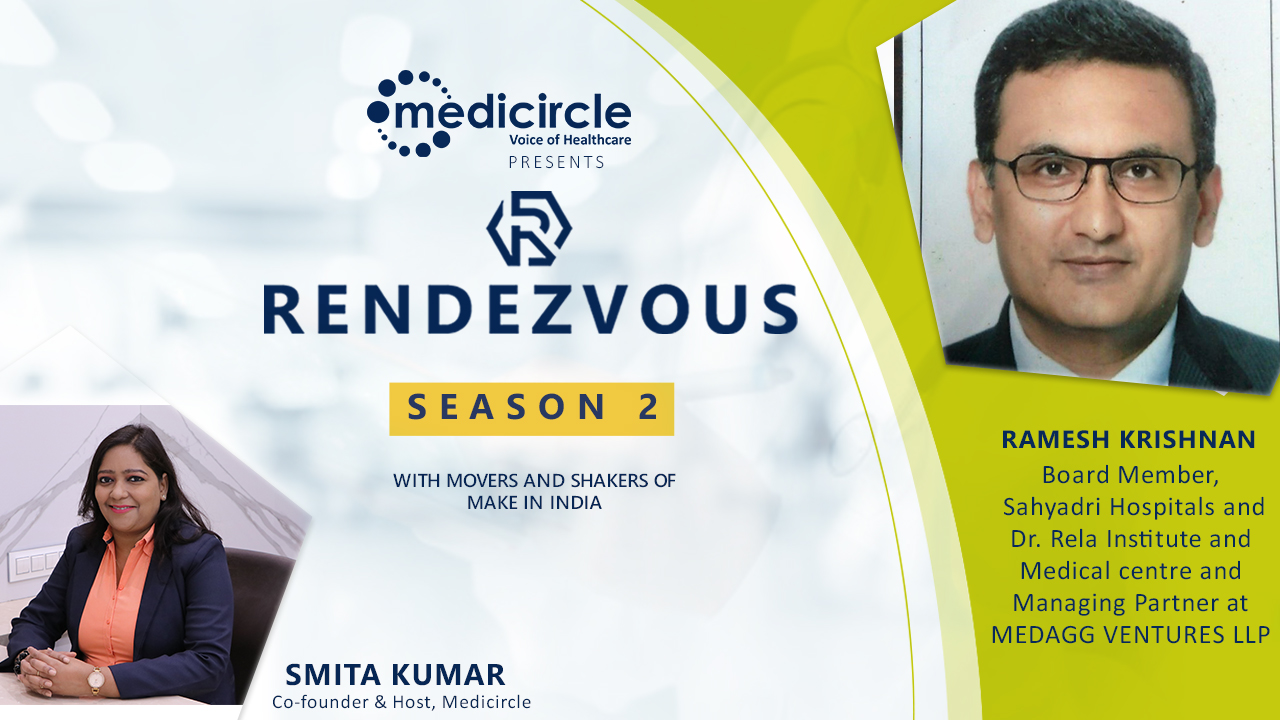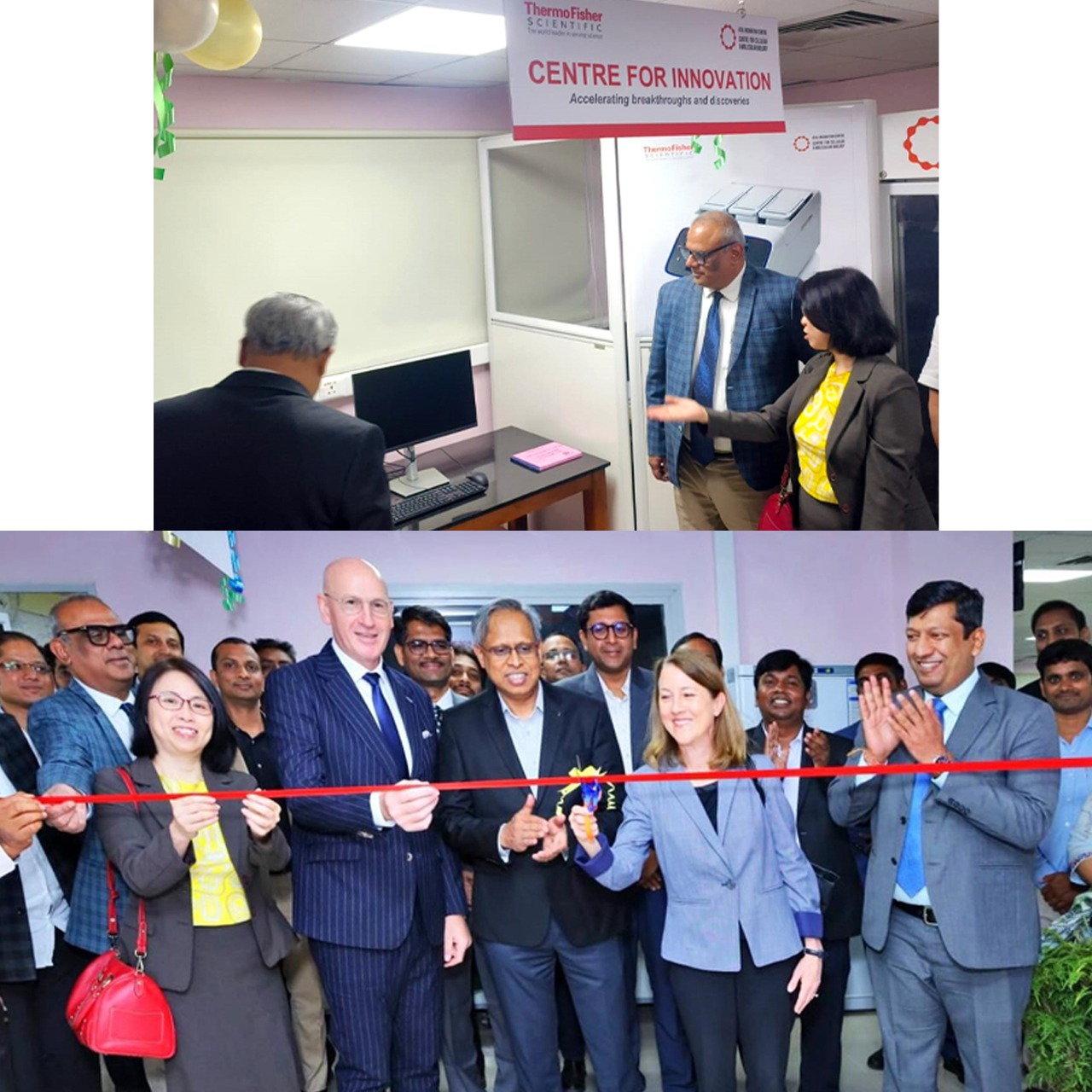Data aggregation is the process of combining information from multiple databases to produce cohesive, shareable information. When it comes to healthcare data, the benefits of sharing are plentiful as from pharmaceutical and biotech companies to care providers, the healthcare sector demands evidence-based decision-making now more than ever.
Ramesh Krishnan, Board Member, Sahyadri Hospitals, which is a large West India chain of Hospitals. He is also a board member of Dr. Rela Institute and Medical centre, Managing Partner at MEDAGG VENTURES LLP, and the Operating Partner at Ever stone Capital.
Medaag Ventures LLP is a team of experts who specialize in operations and management, strategic consulting, and transaction advisory services in the healthcare industry.
Medagg Venture’s goal to become the Airbnb in healthcare
Ramesh throws light on the subject, “Medical Aggregation was the theme that Medagg as a firm was founded on. We work on aggregation at various levels. The eventual goal would be to become Airbnb in healthcare by aggregating secondary neighborhood hospitals. To this end, we have already put together a pipeline of hospitals and are in the process of raising funds. In the meantime, we also apply the principles of medical aggregations in a few more areas as well. For example, we run channel partnerships for a few innovative startups in the healthcare space which help aggregate specific healthcare services across multiple hospitals from a central command centre. ER, ICU, e-pharmacy, central procurement, etc are a few to name. We also partner with a few innovative service providers in commoditizing some common but underprovided treatments like varicose veins by bringing about scale. This we believe could become a huge game-changer in the daycare space,” he says.
Bringing value addition to hospital operations
Ramesh explains, “Medagg also runs strategic advisory services and Transaction advisory services which again focus on bringing value addition to hospital operations through aggregation concepts. I feel that the secondary hospital market is so fragmented that consolidation is inevitable for that segment of the market even to survive. This is the reason we focus so heavily on the aggregation as a theme. It is ironic that at a time when the country needs more treatment beds, one segment of the already installed beds (secondary hospitals) are struggling for survival since they are sub-scale and are not able to handle costs. This actually makes it an ideal case for consolidation,” he says
A journey of more than 25 years in the Pharmaceutical and Healthcare industry
Ramesh talks about his journey, “Healthcare has always been a very fulfilling profession for me. In fact, moving from Pharma to Healthcare delivery has been even more gratifying because you are directly connected to patients. There is so much more that could and must be done in this industry which is still not near equilibrium when it behaves like a steady-state. After 25 years in large corporate, I felt that I could contribute more in the affordable healthcare segment by aggregating services if I go out on my own and that is how Medagg was born,” he says.
Healthcare nowhere near steady-state
Ramesh shares his thoughts on the future outcomes we should watch out for in terms of Healthcare, “The buying behavior in which people are buying healthcare services is constantly changing. This is one of the reasons I say that the industry is nowhere near steady-state. The penetration of insurance is still below 50% in the country. Insurance still does not cover daycare and outpatient treatments. This is primarily because of the fact that primary and secondary healthcare segments are still very fragmented and run like mom-and-pop stores with no large corporate chains having established presence as yet. These are inevitable changes that are bound to come about in the coming few years. These will help consolidate and organize the primary and secondary healthcare segments. A number of startups with interesting products and services are springing up of late, which will all aid to bring about this consolidation. The number of people buying healthcare online is also constantly on the increase. An OYO or Airbnb kind of consolidation in the healthcare space is bound to happen as this would become a basic line of survival for many struggling secondary hospitals. The hospital wards are continuing to be extended out to peoples’ homes with homecare constantly on the increase. This is not only increasing the availability of beds in hospitals in a country that is below global averages in bed provision but also reducing the level of hospital-acquired infections. The government has made its intentions clear that it wants to provide healthcare to its entire population of 1.3 billion people. But it has also made it clear that it will remain as a payor and will not get into provision. The provision is left to the private sector to fulfill. In a social industry like healthcare where the government takes the role of a payor and leaves the provision to the private players, price regulations become a norm. We have started seeing this already and this will only increase. This will call for more innovation to be rolled out in this space. So with this entire churn happening in the industry, we can expect a very exciting, challenging, and innovative decade ahead for Indian healthcare,” he says.
The medical fraternity more confident in handling the sick due to COVID
Ramesh presents his views, “It is true that COVID is not going away in any hurry. But it is also true that our medical fraternity has become a lot more confident in handling the sick. To be honest, I am keener to see an established line of treatment for the disease than even the vaccine. So the fact that our doctors are a lot more confident in treating patients is actually good news. While COVID has indeed established a new normal in the way we go about doing our day-to-day activities, I also see a huge opportunity for innovation, especially within the healthcare space. We will of course have to take the obvious precautions before we get out of this pandemic fully. We cannot drop our guard as yet. However, I do see things coming back quite quickly albeit with caution,” he says.
(Edited by Rabia Mistry Mulla)

 “The buying behavior in which people are buying healthcare services is constantly changing. This is one of the reasons I say that the industry is nowhere near steady state,†says Ramesh Krishnan, Board Member, Sahyadri Hospitals and Dr. Rela Institute and Medical centre and Managing Partner at MEDAGG VENTURES LLP.
“The buying behavior in which people are buying healthcare services is constantly changing. This is one of the reasons I say that the industry is nowhere near steady state,†says Ramesh Krishnan, Board Member, Sahyadri Hospitals and Dr. Rela Institute and Medical centre and Managing Partner at MEDAGG VENTURES LLP.

































